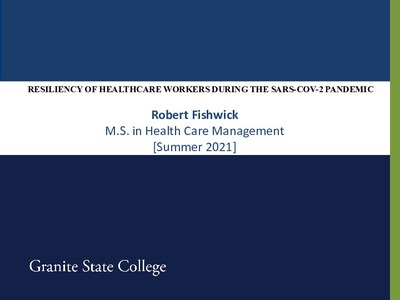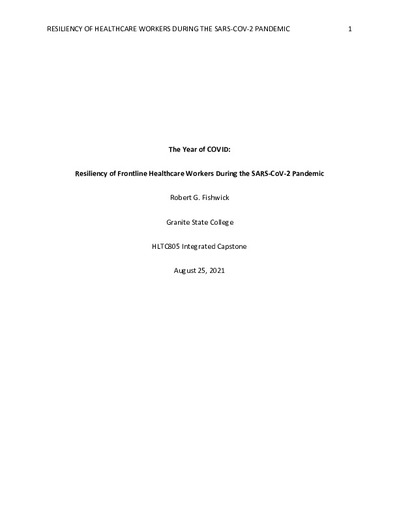| dc.description | The novel Coronavirus-2019 created a world-wide health care crisis generating an overwhelming burden of illness and mortality resulting in physical and emotional distress of health care workers. Frontline healthcare workers remain fearful of infection, death, and the risk of COVID-19 transmission not only to themselves, but to their families. In many cases, these individuals developed post-traumatic stress and other mental, physical, emotional, and spiritual concerns, resulting in a decline of resilience and burn out. The aim of this project is to identify issues linking emotional stress, anxiety, and depression secondary to the COVID-19 pandemic in frontline respiratory therapists working in a 300-bed acute care community hospital in New Hampshire. Findings indicate adverse emotional and physical well-being. Perception, or lack of organizational support increased stress and anxiety, resulting in decreased resilience. Recommendations include techniques to improve or reduce stress and anxiety, and to increase health worker resilience. | en_US |


